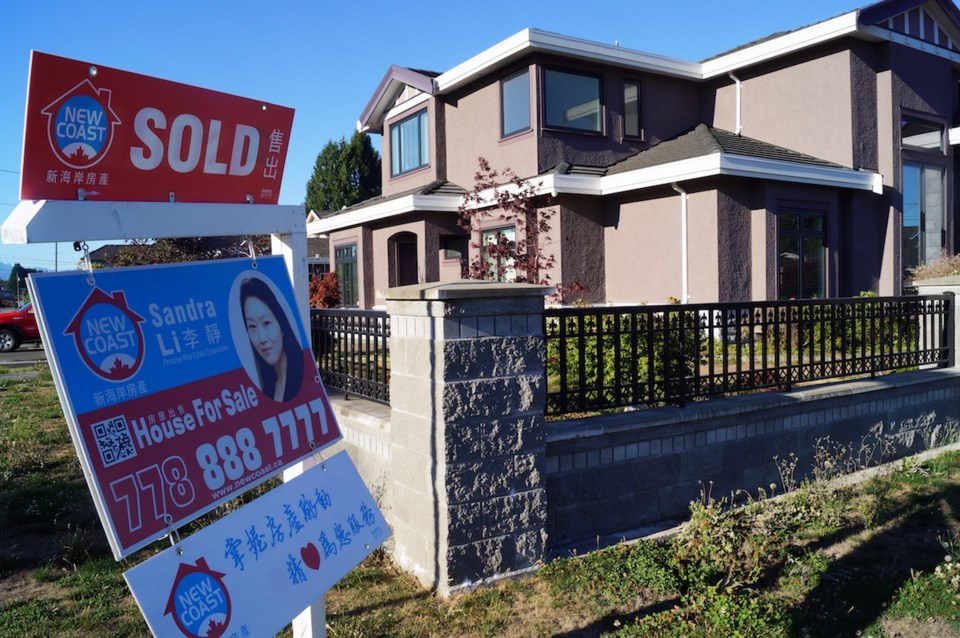Mayor Malcolm Brodie appeared doubtful a home vacancy tax would work in Richmond but said he will monitor the progress of a pitch made by his Vancouver counterpart, Gregor Robertson, to address empty residences.
Robertson has asked the provincial government’s Ministry of Finance for special taxation measures to mitigate the effects of empty homes driving down the vacancy rate in a city already feeling the pinch of unprecedented housing unaffordability.
Brodie said he didn’t think empty homes in Richmond are as much of a problem as they are perceived to be in Vancouver.
“I don’t have data. My perception is, in terms of various combinations of observations, we have less of an issue than Vancouver. But that’s just simply my opinion on it,” said Brodie.
Still, he acknowledged empty homes are a problem, and Richmond should look at any possible solutions.
Robertson has proposed a new tax on homes that sit empty. The idea is to incentivize real estate speculators to rent their properties, thus increasing housing supply.
In terms of rental vacancy rates, Richmond is presently faring worse than Vancouver. Recent figures reported out of Vancouver City Hall indicate a rental vacancy rate of 0.6 per cent. Last week, Coun. Bill McNulty, who sits on Metro Vancouver’s housing board, stated Richmond’s rate is 0.3 per cent.
Brodie said he has “reservations” about the bureaucratic mechanisms available to determine what is and isn’t an empty home.
Vancouver commissioned a study on empty homes in March. Using electricity usage data from 2014, the study determined about 4.8 per cent of all residences are vacant (one per cent of detached homes and 12.5 per cent of condos). The study, however, didn’t qualify a home as vacant if it had some usage, at least five times a month, or if it was used for just one or two months in the summer. It also excluded homes with disconnected utilities.
Given the study’s limitations, Brodie said it would be difficult to determine what is and isn’t a vacant home.
“I just don’t see how it’s going to work,” he said. “It’s difficult to control this overheated market without having unintended consequences,” he added.
Vancouver staff have suggested a complaint-oriented honour system, starting with asking homeowners to provide a driver’s licence and/or rental agreement with their address on it.
The City of Richmond has not investigated vacant home data. Rather, the percieved problem has been left up to anecdotal stories of “ghost neighbourhoods,” such as those chronicled by community activist Kerry Starchuk on Facebook’s Richmond’s Changing Neighbourhoods.
“Many of our neighbourhoods are saddled with a growing number of houses that are vacant and unattended,” Starchuk told the News.
Coun. Carol Day is more bullish on the idea of a vacant home tax than Brodie, having proposed it during the 2014 municipal election.
Although Day said resident-driven complaints could create “havoc,” a person accused of vacating a property could be asked to provide receipts of local purchases.
“I’d much rather see foreign investment controls from a provincial or federal level, because that’s where the mess starts in the first place,” added Day.
Whether Richmond could impose such a tax remains to be seen. Vancouver may be able to do so, but only via the Vancouver Charter, a municipal constitution specific to that city. For Richmond to do the same, changes to the Community Charter — which governs all B.C. municipalities — may be required, said Brodie.
“It’s too early to say. That may make a real difference.”



